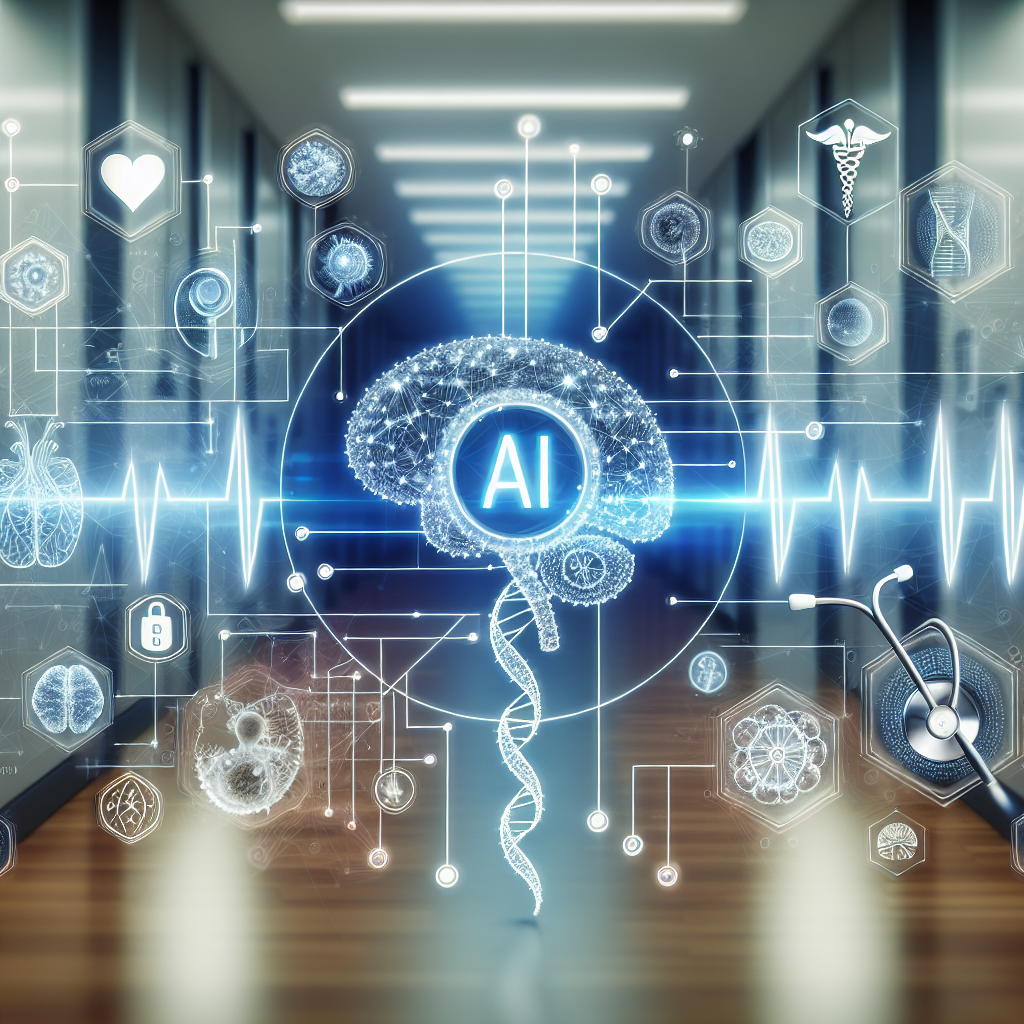AGI in Healthcare: Revolutionizing the Medical Industry with Advanced AI
Introduction
Artificial General Intelligence (AGI) is a form of artificial intelligence that is able to perform any intellectual task that a human being can do. In recent years, AGI has been making significant strides in various industries, including healthcare. The integration of AGI in healthcare has the potential to revolutionize the medical industry by improving patient care, reducing costs, and increasing efficiency. In this article, we will explore the role of AGI in healthcare and how it is transforming the way healthcare is delivered.
The Role of AGI in Healthcare
AGI has the potential to transform the healthcare industry in several ways. One of the key advantages of AGI is its ability to analyze vast amounts of data quickly and accurately. This can be particularly beneficial in healthcare, where large amounts of data are generated every day. AGI can help healthcare providers to make more informed decisions by analyzing patient data, medical records, and other relevant information.
Another important application of AGI in healthcare is in diagnostics. AGI algorithms can analyze medical images, such as X-rays and MRIs, to detect abnormalities and diseases with a high degree of accuracy. This can help healthcare providers to diagnose conditions earlier and more accurately, leading to better outcomes for patients.
In addition to diagnostics, AGI can also be used in treatment planning. By analyzing patient data and medical literature, AGI algorithms can help healthcare providers to develop personalized treatment plans for individual patients. This can lead to more effective treatments and better outcomes for patients.
Furthermore, AGI can also be used in drug discovery and development. By analyzing molecular structures and biological data, AGI algorithms can help researchers to identify new drug candidates and predict their effectiveness. This can help to accelerate the drug development process and bring new treatments to market more quickly.
Overall, the integration of AGI in healthcare has the potential to revolutionize the medical industry by improving patient care, reducing costs, and increasing efficiency. By leveraging the power of AGI, healthcare providers can deliver better outcomes for patients and improve the overall quality of care.
FAQs
Q: What are some of the challenges of integrating AGI in healthcare?
A: One of the main challenges of integrating AGI in healthcare is the need for large amounts of high-quality data. AGI algorithms require a vast amount of data to train effectively, and healthcare data can be complex and difficult to work with. Additionally, there are concerns about patient privacy and data security when using AGI in healthcare.
Q: How can healthcare providers ensure the ethical use of AGI in healthcare?
A: Healthcare providers can ensure the ethical use of AGI in healthcare by implementing strict data privacy and security measures, ensuring transparency in the use of AGI algorithms, and involving patients in the decision-making process. It is important for healthcare providers to prioritize patient safety and well-being when using AGI in healthcare.
Q: What are some examples of AGI applications in healthcare?
A: Some examples of AGI applications in healthcare include diagnostic imaging, personalized treatment planning, drug discovery, and predictive analytics. AGI algorithms can analyze medical images, patient data, and other relevant information to help healthcare providers make more informed decisions and improve patient care.
Q: How will AGI impact the future of healthcare?
A: AGI has the potential to revolutionize the future of healthcare by improving patient care, reducing costs, and increasing efficiency. By leveraging the power of AGI, healthcare providers can deliver better outcomes for patients and improve the overall quality of care. AGI has the potential to transform the way healthcare is delivered and bring about significant advancements in the medical industry.
Conclusion
AGI has the potential to revolutionize the healthcare industry by improving patient care, reducing costs, and increasing efficiency. By leveraging the power of AGI, healthcare providers can analyze vast amounts of data quickly and accurately, diagnose conditions earlier and more accurately, develop personalized treatment plans, and accelerate drug discovery and development. The integration of AGI in healthcare has the potential to transform the way healthcare is delivered and bring about significant advancements in the medical industry. As AGI continues to evolve, it will be interesting to see how it shapes the future of healthcare and improves the overall quality of care for patients.

